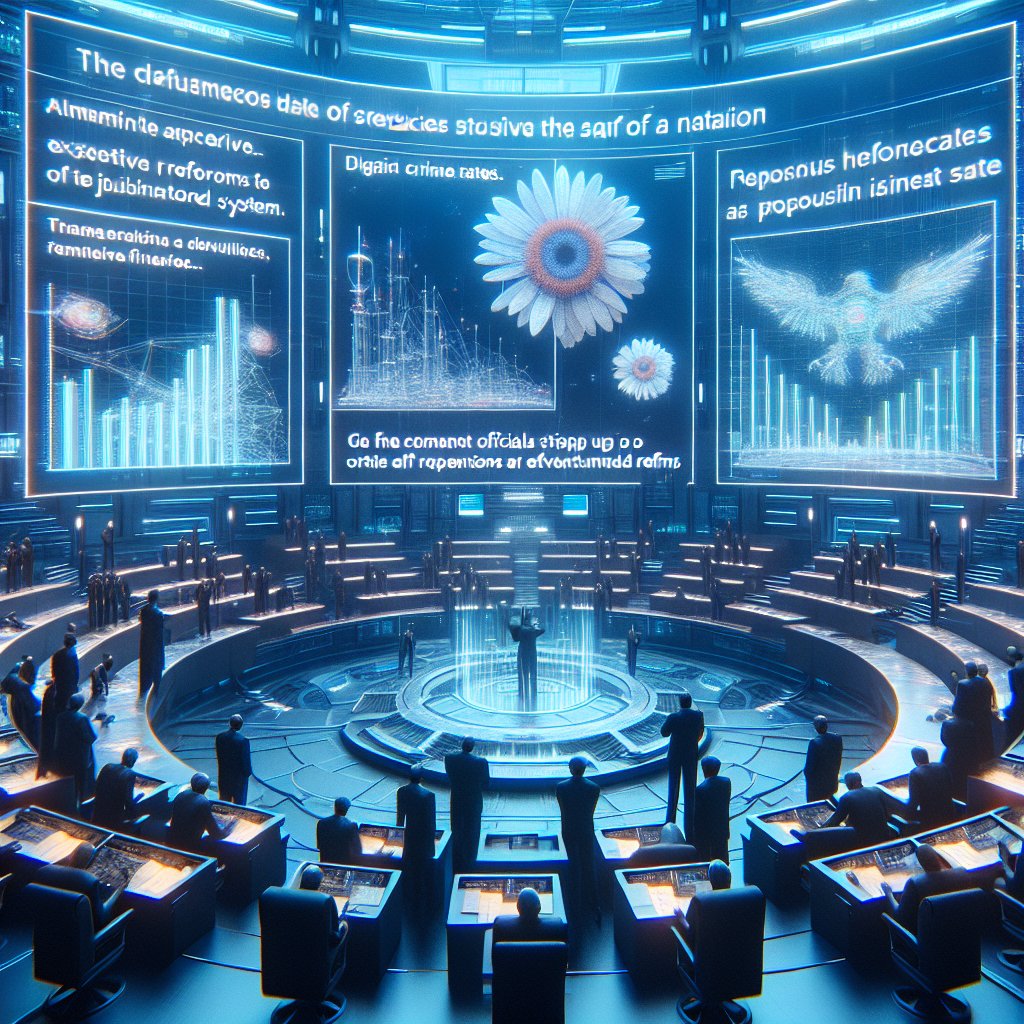Image created by AI
Correctional Services Minister Groenewald Highlights Dysfunctions in South Africa’s System
Addressing the state of the nation during the debate on President Cyril Ramaphosa’s Opening of Parliament Address, Minister of Correctionalll Services Pieter Groenewald delivered a stern narrative on the condition of South Africa, bluntly labeling it a "broken country." Groenewald’s comments not only highlight critical issues within the South African system but also point towards deeper structural reforms needed to facilitate economic growth and social cohesion.
Acknowledging the complex landscape, Groenewald emphasized that a comprehensive examination of the criminal justice system is paramount. His remarks stress an inescapable truth - without a robust and efficient justice system, the foundations necessary for sustainable economic development cannot firmly be laid down. Amid his criticism, Groenewald echoed the need for integrity and competence within civil service: the vital engine for social reform.
Citing chronic issues, such as underqualified officials in positions of power, Groenewald implicitly criticized practices such as cadre deployment - a political strategy accused of placing loyalty over expertise. He asserted the pivotal role of qualified professionals who need to step up and fulfill their responsibilities for the system to evolve positively.
Groenewald’s words as a Freedom Front (FF) Plus leader, and part of the Government of National Unity (GNU), express a consensus that the ruling stratum must act vigorously beyond mere policies on paper, bringing them into action.
The alarming rates of crime emerging from Groenewald’s speech paint a disturbing picture of public safety, a cornerstone of any thriving society. The essence of his message suggests that South Africans are yearning for streets where safety is a given, not a luxury. The need for effective governance and the actualization of policies that directly benefit the public is palpable in Groenewald’s assessment.
Building on the GNU's potential, he encapsulates the mood for change within the electorate. There is a demand for sincere leadership that seeks to not only voice concerns but also craft tangible solutions. The direct call to the public to reflect on whether they align with President Ramaphosa’s priorities signals an aspiration for active civic engagement, pressing South Africans to think critically about their future.
Groenewald's frank discourse could potentially culminate in a rallying point for collective action to mend the cracks within various facets of the nation. In the interconnectedness of today’s world, these reforms resonate beyond national borders, as a robust South Africa benefits the entire African continent and its global partners.










